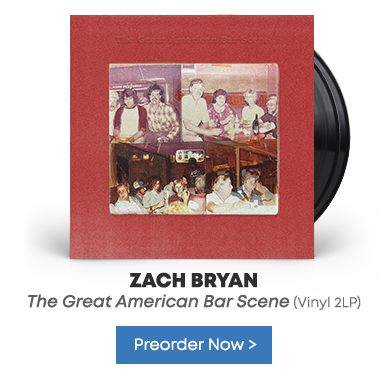When the subject turns to music imported from England, circa 1965, we're often led to believe everything comes down to a battle of the bands: The Beatles versus the Rolling Stones. The nice guys versus the rebels. The pop savants versus the gritty blues interpreters. Yet that same year witnessed the arrival of the Who and its debut, My Generation. Anchored by Pete Townshend and Roger Daltrey, the only surviving founding members, the Who didn't fit into an easy narrative. The quartet shared the Stones' love for the blues, but also appeared ready and willing to harmonize. Townshend's guitar work had an edge, but also brevity that foreshadowed punk rock. Daltrey, meanwhile, favored refined theatrics. The Who, at the time, was brazen, contradictory, and full of attitude. My Generation, newly reissued as a mono-based 50th Anniversary Edition 3LP edition complete with demos and outtakes, continues to defy easy categorization. The same, of course, could be said for much of the 60s catalog of the Beatles and the Stones – but not Album No. 1. Here are five moments from My Generation that still surprise.
"Much Too Much"
In 1967, the Who released "I Can See for Miles," a song that became one of its biggest hits. The tune melded the band's pop, psychedelic, and punishing hard-rock tendencies, but claimed so many complexities, the group rarely performed it live in the 60s. "Much Too Much" proves nowhere near as heady, yet acts as a harbinger of a band willing to experiment and toy with balancing beauty and aggressiveness – aspects of the Who that continue to shape underground and indie rock. Opening with a wake-up call of soaring harmonies, the song starts with a relaxed vocal melody soon contradicted by Townshend's kiss-off lyrics and jerking guitars. A rather insistent piano, which lends a grand orchestral sense while pushing the whole rocky caravan forward, is smartly placed further back in the mix.
"The Good's Gone"
Lyrically, "The Good's Gone" highlights Townshend's bratty, youthful nature and love of the blues. His words get to the point (his significant other "ain't no fun"), and he repeats it throughout the course of the song. But the tune primarily functions as a showcase for Daltrey, who sings the dismissal as if it represents the most important rebuff in the history of pop. Just listen to the first sentence – "I know when I've had enough" – that Daltrey turns into a work of master method acting, bringing his voice into deeper depths with each word until he's in all-out sneer mode. It only gets tougher from there. Daltrey struts like a feral dog that owns all of London. Townshend's guitars twist knots around the words – each verse tightening the noose – and the rhythm section of John Entwistle and Keith Moon stomps as if trying to put cracks in the sidewalk.
"It's Not True"
What we have here is Townshend's sense of humor. "I haven't got eleven kids," he has Daltrey sing near the start of the tune, and quickly adds, "I weren't born in Baghdad." While addressing local gossip, Townshend takes it to absurd, exaggerated extremes, turning the everyday into the outlandish. While the songwriter often dismissed this tune, it stands out not just for its ridiculousness. Again beginning with calm harmonizing, the work almost immediately reverses course into something more old-fashioned. Its rolling piano and guitars that skip with the beat capture the excitement of a Chuck Berry classic, and handclaps arrive to ride Entwistle's groove. When Townshend and Daltrey try to slow the pace, Moon has none of it, plowing along to make sure no lie is easily forgiven.
"The Kids Are Alright"
One of two generational anthems on the album – the other, of course, being the title track – "The Kids Are Alright" doesn't have any sort of chip on its shoulder. Instead, it offers a more utopian view, hinting at mistakes but believing all will be fine in the end. In this sense, it's a bookend to "My Generation," with the softer vibe, swooning harmonies, and upper-register guitar notes adding a sense of vulnerability to Moon's insistence. In fact, the song offers some real grown-up lessons – namely, the value of alone time away from a romantic partner. The way the band locks into harmonies around Daltrey conveys a related sense of trust. Maybe it's even a little naïve, what with its downbeat midsection that romanticizes the message. But the Who would have another five decades to write about lessons learned.
"My Generation"
Still one of the band's signature songs, and one that boasts perhaps the most oft-quoted rock n' roll lyric: "I hope I die before I get old." Townshend's wish never got fulfilled, but the mix of pure pride and vitriol have made the tune a template for nearly all forms of rock rebellion that would follow. Patti Smith, Iron Maiden, and Green Day are just a few of the diverse acts that dug into it. As hard-edged as the anthem remains, it's also rather malleable, working across multiple genres and decades. With a strong rhythm & blues foundation, the song boasts a rather unexpected vocal approach by Daltrey, who stutters and spits words. Multiple theories exist as to why, but the technique creates a confrontational vibe, and because of the arrangement's call-and-response nature, he comes off as something of a gang leader. The instruments sound weaponized, too. Townshend's guitars back the vocalist with tough-guy poses, Moon's rhythms aren't interested in a breather, and Entwistle's bass enjoys a too-cool-for-you solo. It all piles up in a furious crash at the end.
24th Feb 2017




































